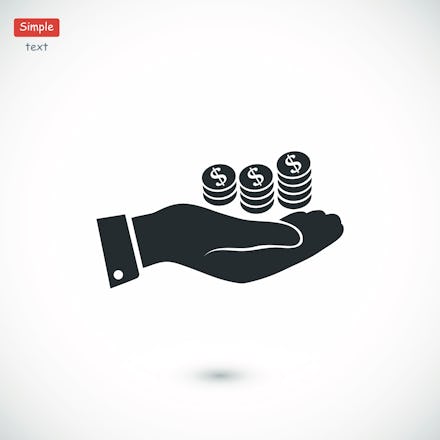5 mindless and easy ways to save money — without even trying

Do you ever find yourself feeling like there is too much month left without enough money to pay for expenses until your next paycheck comes?
Maybe you have heard you need to save about 15% of your income for retirement or you see that you should have six whole months of savings set aside in an emergency fund, per a recommendation from places like the Center for Retirement Research at Boston College.
But this advice can seem about as easy to follow as a recommendation that you take a trip to the moon
The good news is, with a few little tweaks, saving at least a little doesn't have to be a grind that interferes with your life. It can be simple and easy.
There are actually ways to save without any effort or thought on your part: Here are 5 of them.
1. Turn a cut cord into a cash stream
Did you finally pay off that credit card or drop your cable in favor of a cheaper streaming subscription? As Mic has suggested before, you can save a lot by doing a purge of monthly wallet-drainers like subscriptions and memberships.
But that's not all you should do.
Instead of just mindlessly spending that $100 that you used to send to the cable company (or your creditors), set up an automated transfer — so the money moves into a savings account each month. Set it and forget it.
You were used to spending the money anyway, so you won't miss it from your budget. Plus, investing in yourself is way better than sending cash to companies to boost their balance sheet.
By banking the savings every month, you could end up putting away a lot of money over time — without changing your lifestyle at all.
2. Upgrade your bank account
If your bank account is not paying you interest, or isn't paying very much interest, consider a change. If you have $1,000 in an account that pays no interest, you gain nothing by leaving your money sitting there.
If your account pays 1.5% interest, your bank will pay you $15 a year just for keeping your money in the account. That's not a lot, but every bit counts.
Good news: There are good banks that actually pay reasonable amounts of interest to account holders.
Bankrate reports that the average interest rate on money market and savings accounts ranges between 0.11% and 0.39%.
But when you actually compare account interest rates and shop around you will find much higher (and lower) rates out there, ranging from a 0.02% annual percentage yield up to 1.15% APY. Credit unions sometimes pay much more.
You should shop around carefully to find a bank or a credit union that will actually reward you for being a customer.
3. Make smart use of apps
There is an app for everything, including apps that help you boost your savings. One option is Acorns, which rounds up your spending to the nearest dollar and puts the extra money into savings.
When you link Acorns to your checking account and you charge something that costs $2.50, for example, Acorn will round up to $3.00 and transfer that extra $0.50 into your chosen account.
Other apps like Digit also help you save by automatically transferring a small amount of money to your checking account every few days. Digit uses algorithms to calculate an affordable amount you won't miss.
4. Gamify saving — so it's fun
Make a decision that when you get back a wrinkled, old $20 bill — instead of a crisp new one — you'll put that $20 into savings.
Decide that every $5 bill you get back as change, you will save.
You can make up your own rules, but the key is to devise a fun way to put aside a little money that gives you a little burst of dopamine.
Whenever you get handed the particular bill you decided to save, put it in a special envelope or special section of your wallet.
Deposit the money once a month, and you'll be surprised at how quickly your savings grows.
5. Avoid the "hedonic treadmill" by banking your raises
You are really used to living on your paycheck. If your check gets bigger because of a bonus or a raise, there's no reason to get accustomed to having this extra cash.
Experts call that kind of conditioning the "hedonic treadmill": When people get more money, they tend to spend more money — and they don't actually get any happier anyway, because their lifestyle and expectations rise, too.
Instead of hopping on the treadmill, ask your employer to directly deposit the increased portion of your salary or your bonus into a savings account.
You will never see the money, so your lifestyle won't expand to the point where you need to spend all of this new cash.
And if you really need the extra cash?
Try to compromise and section off at least a portion of the bonus or raise — say, half of the extra you are given.
Even this can add up to a lot if you do this every time your salary gets a boost.
With effortless ways to save, there's no excuse to wait: Having a healthy bank balance can help set you up for financial security and can alleviate your money worries.
Start putting these ideas into practice today so you can meet your goals.
Sign up for The Payoff — your weekly crash course on how to live your best financial life. Additionally, for all your burning money questions, check out Mic’s credit, savings, career, investing and health care hubs for more information — that pays off.